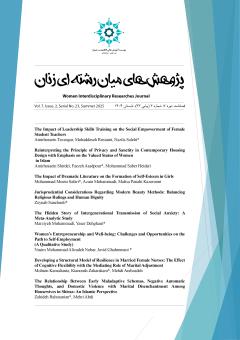-
-
-
Open Access Article
1 - The effectiveness of cognitive-behavioral stress management training on improving quality of life and happiness in women with multiple sclerosis in Shiraz
فریده انصافداران Athar Afshar -
Open Access Article
2 - effectiveness of cognitive-behavioral stress management training on quality of life and happiness in M .S patients in Shiraz
فریده انصافداران، اطهر افشار -
Open Access Article
3 - The Relationship Between Self-Compassion and Cognitive Evaluation with Stress Habits in Women with Multiple Sclerosis
Zohreh Pourmirza Leilakouhi Sirvan Asmaei Amajd
List of Articles Multiple Sclerosis
-
The rights to this website are owned by the Raimag Press Management System.
Copyright © 2017-2025


